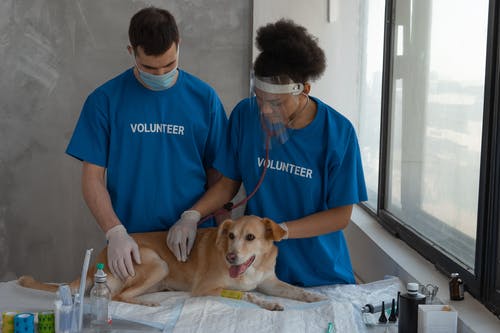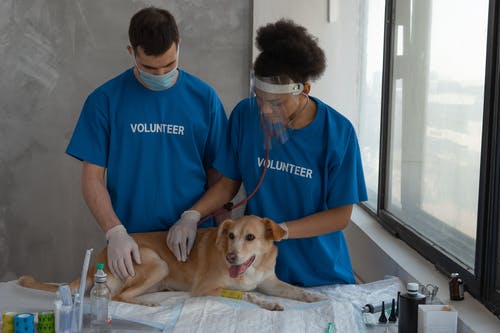Things Your Veterinarian Examines During Routine Checkups
Veterinary checkups, often referred to as routine wellness exams, aid in protecting a pet’s health. Annual or semi-examinations can support your veterinarian in finding early indications of diseases where numerous conditions are treatable. It is far more cost-efficient, in the long run, to take your pet in for regular checkups rather than risk your furry friend’s well-being. Here’s what to expect during your next routine examination.
Services That Vets Provide for Your Pet
As a pet owner, it’s natural for you to be concerned about your pet’s health and wellness. Having a regular veterinarian can ensure that your pet gets the necessary treatment. Vaccinations, parasite control, and regular physical exams can help prevent diseases that are not only fatal but also exceedingly expensive to treat.
Your veterinarian can provide wellness services based on your pet’s breed, age, lifestyle, and overall health. It’s a good idea to discuss with your vet and learn more about why veterinary care services are important for keeping the pet healthy.
Take Vital Signs
The vet or vet tech will take your pet’s vital signs, measuring temperature, pulse, breathing rate, and weight. Any substantial changes in vital signs can indicate abnormalities that may necessitate treatment, and comparing current measures to previous data can assist the vet in determining what diagnostic tests may be required now or in the future.
Conduct Physical Exam
When you take your pet in for a routine examination, the veterinarian will examine your pet’s medical history. In addition, your veterinarian will inquire about your pet’s diet, exercise, breathing, behavior, lifestyle, and general health. Your veterinarian will also do a complete physical examination. These physical examinations include:
- Listening to your pet’s lungs and heart sounds
- Examining the stance and weight of your pet
- Check your pet’s eyes, hair, skin, nails, feet, ears, and teeth
- Check your pet’s internal organs by abdominal palpation
- Examining your pet’s body for signs of discomfort and swelling
Physical examinations allow veterinarians to discover indications of health problems, like tumors and skin allergies. Based on your pet’s medical history and the outcomes of a physical exam, your vet might suggest particular preventive treatments, such as vaccines, parasite prevention, or weight control. You can check this link for more information on the real importance of physical examinations for pets.
Administer Pet Vaccinations
Veterinarians utilize routine checkups to ensure that your cat or dog vaccinations are up to date. It is important to ensure that your pet is appropriately immunized to protect their health and prevent the spread of harmful infections. Vaccinations against diseases like distemper, rabies, hepatitis, chlamydia, feline leukemia, and Lyme disease are often given to pets at the vet clinic.
Preventing Parasitic Diseases
Parasites pose a severe threat to the health of our pets. Your vet will recommend preventive measures to protect them from possibly fatal parasitic infections spread by ticks and mosquitoes. It’s also critical to remember that some parasites can be passed on from animals to humans. That’s why preventing parasitic diseases is vital to your pet’s overall health.
Final Thoughts
It’s quite handy to know what to expect when paying a visit to the vet. Why? Because no one enjoys surprises. Regular vet checkups must be a top priority when you have a pet to prevent any future problems. Taking care of your pet is one way to make sure that they have a healthy life.











